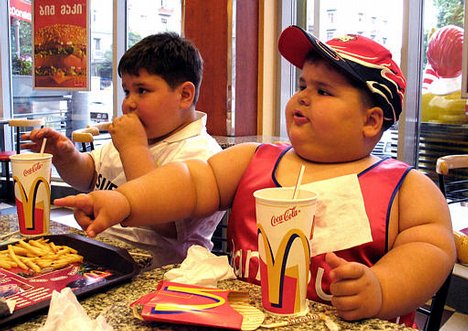Originally published in The Huffington Post
According to the logic of fast food companies, caring about the province of your food or the state of your health is akin to snobbery, pretentiousness, and even being part of the "nanny-state." But fast-food marketers are also aware that the tide may be turning. Several recent McDonald's advertisements are case in point. In one new ad, the company specifically calls out "foodies" and "gastronauts," positioning its food as food for the "average Joe" and implying that "real Americans" do not and should not care about the quality of their food. But then, in a separate ad campaign, McDonald's attempts to appeal to those same "foodies" it disparages by claiming to be transparent about the ingredients in its food (if only on a very cursory level).
Now, Carl's Jr. is taking a page out this playbook but with a different tactic. Since fast food by its very nature is food that requires a certain amount of nescience -- about what it's doing to your health, about the environmental costs, about the poor treatment of millions of animals required for its products, and about the fair treatment of workers all along the food chain -- the introduction of the first "all-natural" "grass-fed" burger represents a potential shift in the fast food paradigm.
Sure, other fast food companies have made nods to "health," like in the case of McDonald's oatmeal, and the food industry has long made various health claims with "low-fat" or "no-cholesterol" on its products, but bringing a grass-fed burger to a major fast food outlet is significant. This isn't Chipotle or Shake Shack, which are branded as healthier fast food; this is Carl's Jr., a company that has never made any claims to health or sustainability.
So it's interesting to see how the company chose to introduce this burger: With Charlotte McKinney, a woman many have described as "a Kate Upton lookalike" nearly naked and strutting through a farmer's market to a chorus of ogling men. The viewer first confronts a mostly naked McKinney who basically moans, "I love going all natural. It just makes me feel better. Nothing between me and my 100 percent, all-natural juicy, grass-fed beef." This advertising tactic works to masculinize the concept of caring about the province of your food and the state of your health since the food industry has historically portrayed this concept as weak or effete.
While previous Carl's Jr. ads were equally demeaning, they were less surprising because they were hawking products that were damaging to our health and our environment as well -- they seemed perfect bedfellows. Grass-fed and all-natural, at their best imply a respect for nature, a respect for the health of our bodies and a concern about both human and animal welfare, so to see this paired with the most crass form of sexist advertising is deeply jarring. Granted, as a woman, I am not Carl Jr.'s target audience. In a statement about the new burger, Brad Haley, chief marketing officer of Carl's Jr. said, "We've seen a growing demand for 'cleaner,' more natural food, particularly among Millennials, and we're proud to be the first major fast food chain to offer an all-natural beef patty burger on our menu...Millennials include our target of 'Young Hungry Guys' and they are much more concerned about what goes into their bodies than previous generations."
But this is not the standard lean-chicken-breast-and-protein-shake variety of concern about what men put into their bodies -- (as deeply misguided on nutrition as that is) grass-fed beef, is actually a nutritionally sound and environmentally responsible approach to eating beef. It also stands for a much more humane way of raising animals for food, allowing them to graze on pasture and eat their natural diet, rather than cramming them into filthy feed lots and stuffing them with antibiotic-laced corn.
Will the food industry's attempt to capitalize on the "growing demand for cleaner more natural food" ruin the grass-fed designation, just at it did with organics in some cases? Where will all this grass-fed beef come from? It's not hard to imagine the industry tweaking the requirements for beef to be "grass-fed" in the same way that the egg industry claims "free-range" with thousands of hens housed in a crowded and filthy structure with "access" to a door that may or may not allow them to ever step foot outdoors. Is grass-fed just the next buzz word in food marketing that will quickly lose its meaning?
The fact that Carl's Jr. can even market this burger as "all-natural" is highly questionable. Beyond its grass-fed patty, the honey wheat bun contains roughly 30 ingredients including artificial flavors, hydrogenated soybean oil (trans-fat), and a bevy of other chemical flavor enhancers and preservatives. The ketchup contains high fructose corn syrup, the mayonnaise contains preservatives and flavor enhancers, and the pickle chips have more of the same. All told, you're consuming about 60 ingredients in that "all-natural" burger.
I'm left wondering if the target audience of men aged 18 to 34 will actually care about the province of their food and their health on the deeper level that the return to grass-fed beef represents. We can only hope that the Carl's Jr. ad is selling this demographic short in anticipating that the way to sell them on the importance of cleaner, fairer, more humane food is by exploiting women in sexist ads.


